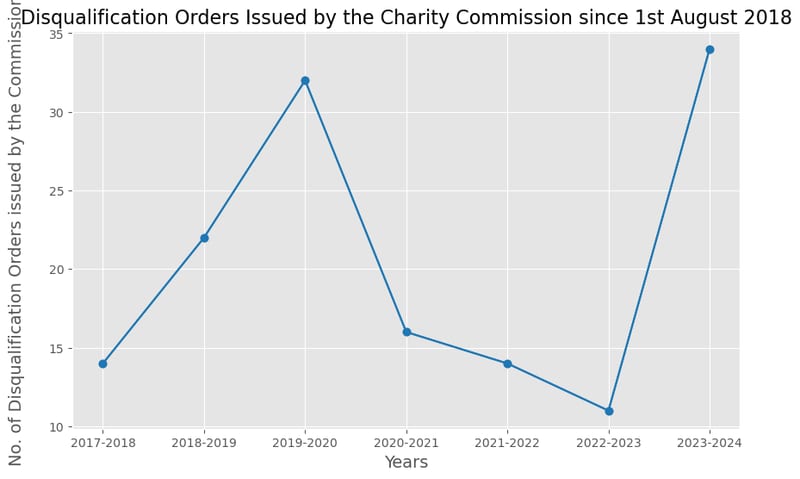Data (Use and Access) Act 2025 — how opt-in rules are changing for charities

We explore how charities will need to manage their marketing activities and supporter consent once the secondary legislation takes effect.
Read more
We make the difference. Talk to us: 0333 004 4488 | hello@brabners.com
Disqualification Orders prevent individuals from acting as charity trustees. Issued by the Charity Commission — the non-ministerial Government department that regulates charities in England and Wales — these orders also disqualify individuals from holding senior management positions in a charity, whether paid or unpaid (unless the Commission deems the circumstances to be exceptional).
Here, Imogen Trafford from our charities, not-for-profits and social enterprises team explains the nature of charity trustee Disqualification Orders, their implications and the circumstances under which they arise.
A Disqualification Order will state whether the person concerned is disqualified in relation to all charities, specified charities or a certain class of charities. In practice, the Commission tends to issue general disqualification orders.
While a person is disqualified under this power they are also disqualified from holding senior management positions of a charity, whether paid or unpaid (unless the Commission deems the circumstances exceptional).
The period of disqualification depends on the seriousness of the matter but can be for a maximum of 15 years.
Given the fact that Disqualification Orders are announced and listed publicly on the Register of Removed Trustees, they may also have a more personal impact on the individuals concerned. For example, where trustees are individuals accredited by professional bodies, a Trustee Disqualification Order could affect their accreditation.
The grounds on which the Commission can issue a Disqualification Order are set out in section 181A of the Charities Act 2011.
By way of summary, the Commission must satisfy all three of the following criteria:
The ‘six conditions’ referred to in criterion 1 are:
Clearly, condition F is very wide and offers a fairly low threshold for the Commission to rely on.
Before a Disqualification Order can be issued, the Commission must have already contacted the individual before issuing a one-month notice of an intention to disqualify them. Consequently, the trustee concerned will be given a minimum of one month in which to make representations to the Commission before the Disqualification Order is issued.
In most cases, there will have already been considerable back and forth between the trustee and the Commission relating to the relevant charity in some form of regulatory proceedings (for example, through a regulatory compliance case or statutory inquiry).
For context, the Commission regulates over 168,000 charities in England and Wales, of which there are almost one million trustees. 2023-2024 saw a record number of disqualifications.

The Commission’s power to disqualify individuals from trusteeship is designed to make sure that charities live up to their purpose. The Commission is seen to play an important role as a regulator in granting confidence that charities are robustly and effectively governed and deliver on their critical roles in society.
If you have questions about a Disqualification Order, talk to us. Our specialist charities, not-for-profits and social enterprises team is recognised by The Legal 500 as a leading team of experts with a national reputation for providing accurate, pragmatic and commercially focused advice.
Get in touch with our experts today by giving us a call, sending us an email or completing our contact form below.

Loading form...

We explore how charities will need to manage their marketing activities and supporter consent once the secondary legislation takes effect.
Read more

What happened in Gary Mond’s case? We explore why this offers more clarity to charity trustees around social media activity.
Read more

Issued by the Charity Commission, Disqualification Orders prevent individuals from acting as charity trustees or holding senior management positions in a charity, whether paid or unpaid.
Read more